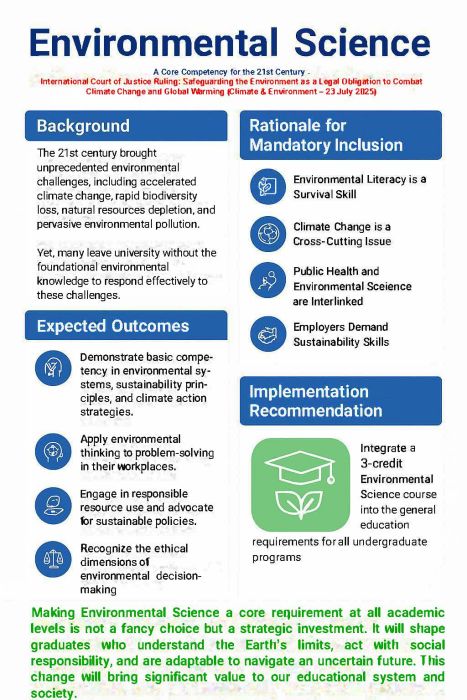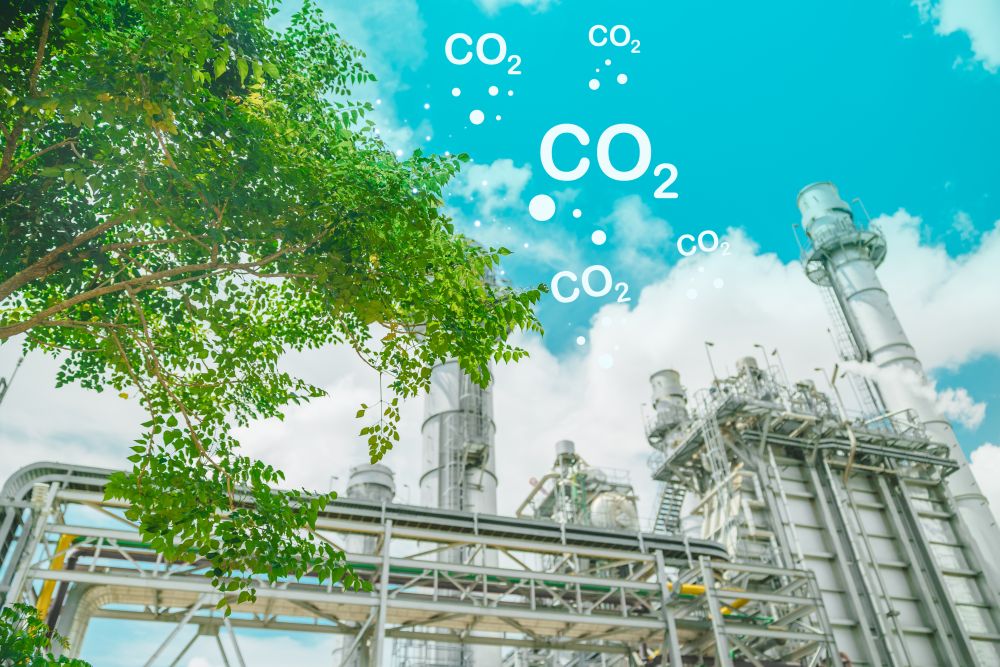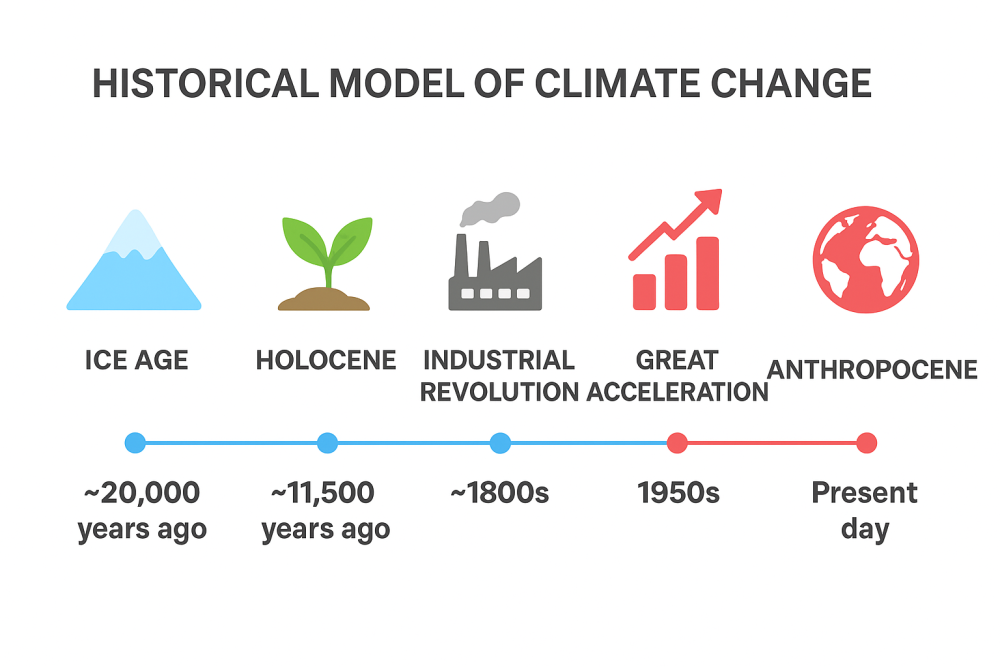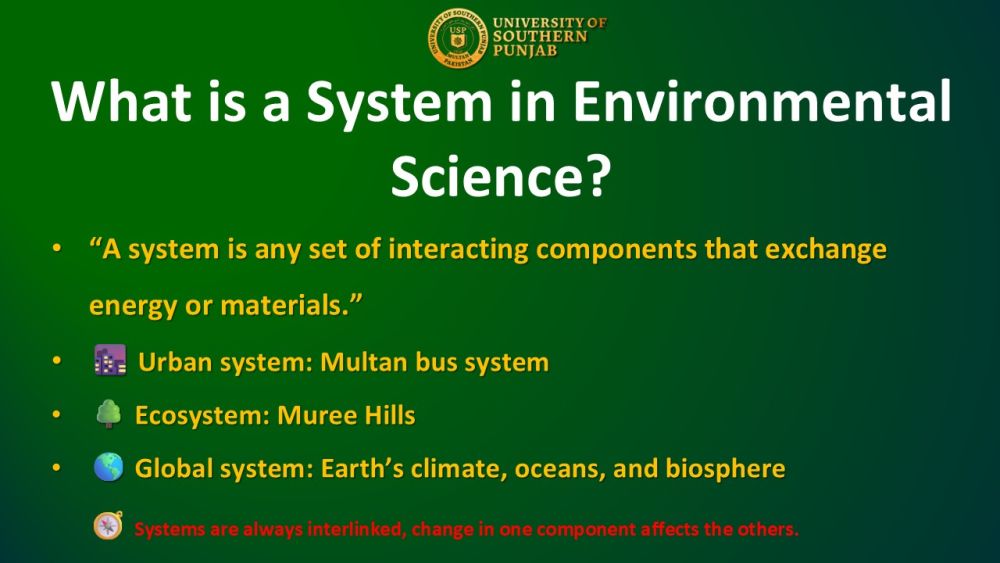34/25 Why has the University of Southern Punjab, Multan (USP), implemented a policy on studying Environmental Science as a Mandatory Course for All Undergraduate Students?
Posted 5 months ago
Environmental Science: A Core Competency for the 21st Century
The University of Southern Punjab, Multan, Pakistan, will offer the Environmental Science course in collaboration with several international partners and national environment experts. This university has a congenial learning environment and is recognized as one of the best universities in Southern Punjab. Notably, the Rector serves also as a patron of greening.live forum that provides an opportunity for scholars across the globe to share their ideas and thoughts.
Background
The 21st Century faces unprecedented environmental challenges, such as climate change, biodiversity loss, resource scarcity, and pollution. These urgent issues directly impact human health, economic stability, and social equity. Graduates entering any profession will face decisions shaped by these environmental realities. Yet, many leave university without the foundational knowledge to respond effectively to these pressing challenges. This is why the initiative to make Environmental Science a mandatory course is significant and timely.
Rationale for Mandatory Inclusion of Environmental Science
1. Environmental Literacy is a Survival Skill
Environmental issues like air quality, water safety, food systems, and waste management directly affect health and wellbeing. Understanding these systems equips graduates to make informed personal, professional, and civic decisions.
2. Climate Change is a Cross-Cutting Issue
Climate risks permeate every field, from engineering to business and healthcare education. A shared knowledge base on environmental science prepares graduates to address climate impacts within their disciplines.
3. Public Health and Environmental Science are Interlinked
Environmental degradation, air pollution, contaminated water, and deforestation drive disease outbreaks, respiratory illnesses, and malnutrition. Students must understand these connections to prevent and mitigate health crises.
4. Employers Demand Sustainability Skills
The global economy is transitioning toward net-zero carbon emissions. Employers increasingly require knowledge of sustainable practices, green technologies, and environmental compliance.
5. Ethical and Civic Responsibility
Environmental justice is a moral imperative. Educating all students ensures they understand the disproportionate impacts of environmental harm on marginalized communities and their role in promoting equity.
Expected Outcomes
By completing a mandatory Environmental Science course, all graduates will:
- Demonstrate basic competency in environmental systems, sustainability principles, and climate action strategies.
- Apply environmental thinking to problem-solving in their chosen field.
- Engage in responsible resource use and advocate for sustainable policies.
- Recognize the ethical dimensions of environmental decision-making.
Implementation Recommendation for Universities Across the Globe
- Integrate a 3-credit Environmental Science course into the general education requirements for all undergraduate programs.
- Ensure that the course content is designed to bridge the gap between science, human health, climate change, and sustainable development, making it relevant and engaging for students from all disciplines. Incorporate local, regional, and global case studies to foster applied learning.
Take-Home Message
Integrating Environmental Science into schemes of studies of all undergraduate programs is not merely an academic add-on but a strategic investment in producing environmentally literate, socially responsible, and professionally adaptable graduates. This is not just an ethical but also a practical responsibility of every higher education institution. The course is designed to be relevant and engaging for students from all disciplines, equipping them with basic knowledge and skills to contribute to the endeavours to bring a significant positive change in the world.
This article has been edited by Dr. Saleem Khan, HOD English Department, University of Southern Punjab, Multan, Pakistan.




